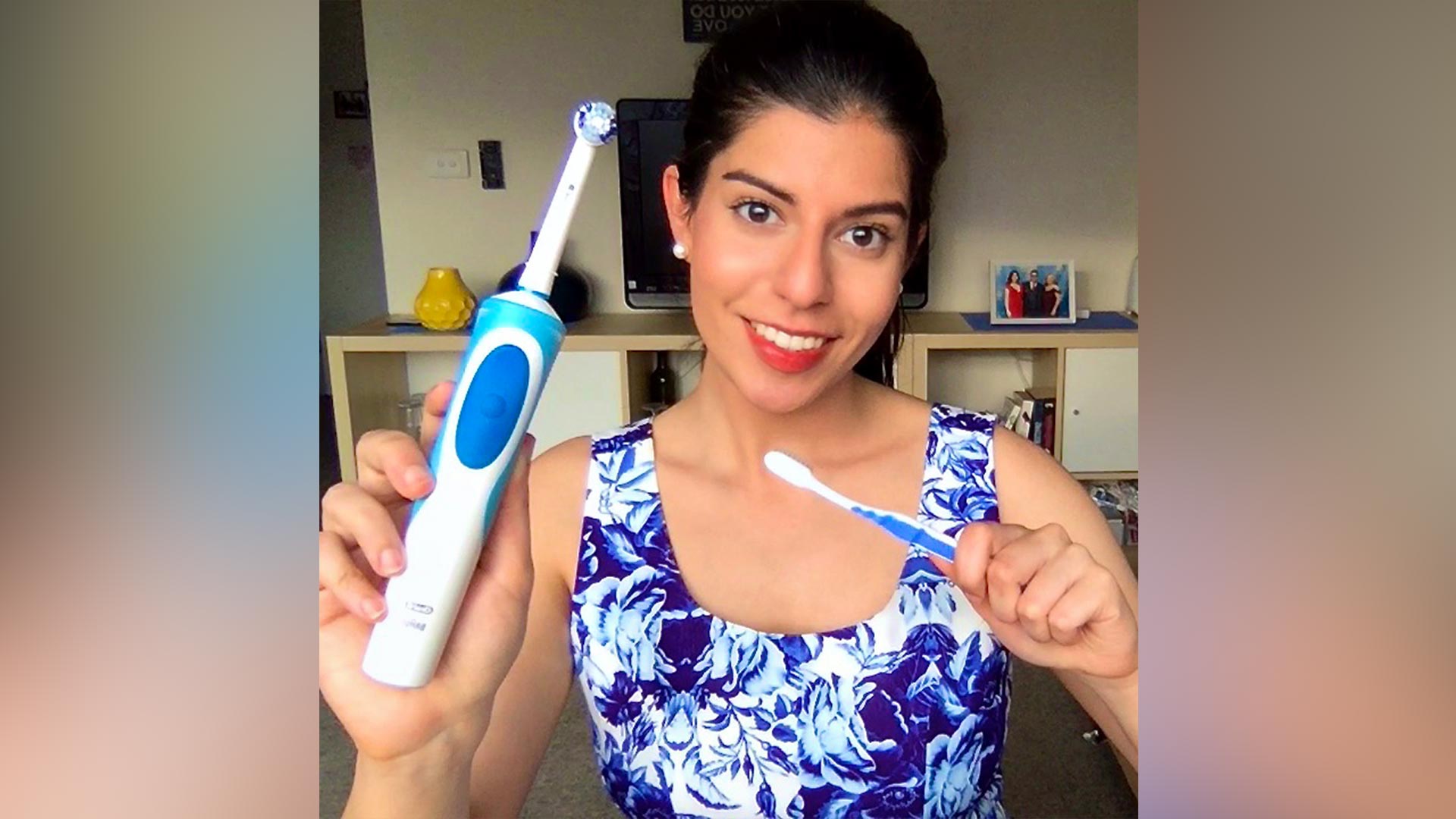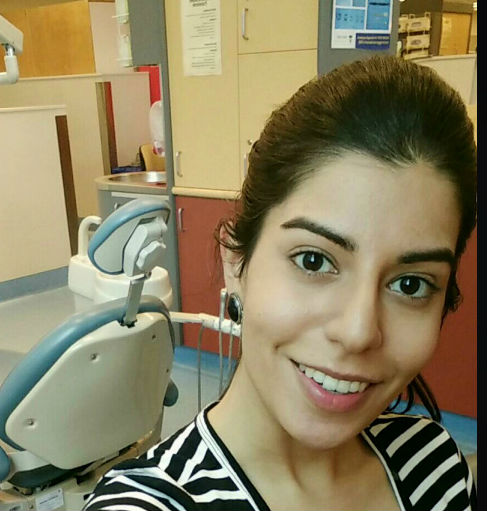Manual Vs. Electric Toothbrush

The MOST frequently asked question ❓ of ALL TIME - which is better, Electric Toothbrush or Manual? The truth is, according to scientific journal articles, both electric and manual toothbrushes are EQUALLY effective. But the reality is, most people don’t perform the proper manual toothbrushing technique…
Most people can regurgitate that they need to “make little circles with the toothbrush”. But when I put my patients to the test and give them a manual toothbrush spontaneously, very few of them actually remember the “little circles”, and most of them get caught aggressively brushing from side to side. I don’t blame them…toothbrushing is a boring task - something you do subconsciously while your mind focuses on the next task in your agenda.
🚫 Unfortunately, bad tooth brushing techniques can lead to tooth sensitivity and gum disease. Below I will list a few advantages and disadvantages of both electric and manual toothbrushes to help you decide on the best toothbrush for your needs:
Advantages of an Electric Toothbrush:
- More exciting and less technique sensitive, because it rotates the toothbrush head for you.
- SAVES TIME! Electric toothbrushes provide 6,000 to 30,000 strokes per minute, whereas your hand averages to 300 strokes per minute with a manual toothbrush
- Better access - if you can’t open your mouth very wide and/or you have all your wisdom teeth, then an electric toothbrush will really help you access the back of your mouth since it usually has a smaller toothbrush head than manual toothbrushes.
- Pressure control - one of the most common reasons for sensitive teeth is recession of gums and/or tooth abrasion, which may be caused by brushing too hard. Electric toothbrushes don’t require any additional pressure from the user, you simply place the toothbrush head on each tooth surface for 5 seconds and then move onto the next tooth.
- TIP: Start from the back corner of your mouth and move along the arch in a systematic manner. This way, you won’t miss any teeth and you won’t aggressively brush from side to side.
Disadvantages of an Electric Toothbrush:
- Cost - electric toothbrushes tend to be more expensive than manual toothbrushes.
- Not very travel friendly - electric toothbrushes usually need to be recharged after a day or 2. So, if you travel a lot, then electric toothbrushes may not be suitable for you.
- Tooth Abrasion - the outer protective enamel layer of your teeth can STILL be worn down if you brush for too long or place too much pressure on the electric toothbrush.
- TIP: As previously mentioned, you do NOT need any additional pressure and you certainly don’t want to be aggressively brushing from side to side with an electric toothbrush.
- If you already have tooth sensitivity due to receding gums or tooth abrasion, then you might find electric toothbrushes on those areas too painful. In this case, manual toothbrushes may be helpful, so you have more control over the pressure in specific areas.
- If you are getting older (usually 65+) and finding that your teeth are becoming more loose, then electric toothbrushes may not be ideal for you. The vibration and pressure from the electric toothbrush may cause discomfort or increase the mobility of those loose teeth.
Advantages of Manual Toothbrushes
- More control - you decide how fast & how hard you want to brush. This is useful if you have sensitive areas in your mouth that may be aggravated by an electric toothbrush.
- More cost effective - usually a good manual toothbrush is under $10
- Very travel friendly - Easy to store & easy to replace if you are hopping from country to country and accidentally misplace it.
Disadvantages of Manual Toothbrushes:
- Very technique sensitive - the user has to have excellent brushing technique in order to thoroughly clean the mouth.
- No timer - if you’re someone who easily loses track of time, then over brushing with a manual toothbrush might become your worst enemy, which may lead to you having sensitive teeth or recession of your gums in the long run.
- TIP: 2 to 3 minutes with a manual toothbrush is ideal - anything over 3 minutes might be more harmful than helpful for your teeth
- Excessive amount of pressure - sometimes users prefer a manual toothbrush over an electric one because they can brush “harder” and give themselves the illusion that their teeth feel “more clean” with excessive pressure.
- TIP: brushing harder will not clean your teeth any more. If anything, brushing too hard will slowly remove the protective outer layer of your teeth (enamel), which will once again lead to sensitive teeth in the long run.
- Harder access - the toothbrush head for manual toothbrushes is usually bigger than electric toothbrushes. Most people face difficulty reaching the last tooth in each arch.
- TIP: If you’re a manual toothbrush user, then I suggest you buy a toothbrush with the smallest toothbrush head. Most people assume that bigger toothbrush heads = more surface covered = better clean…but this is not necessarily true. Big toothbrush heads are harder to control and give you very little access to your back teeth.
- If you suffer from conditions (like arthritis), which impact your motor skills, then manual toothbrushes may be harder to use properly.
Conclusion
Now that you have learned the advantages and disadvantages of each option, I hope it will help you make a more informed decision on what toothbrush is best for you. Personally, I use an electric toothbrush because I always lose track of time, so the timer on the brush prevents me from over brushing. Also, before bed, I can barely keep my eyes open, so performing the proper tooth brushing technique with a manual toothbrush isn’t ideal for me. However, what’s ideal for me, might not be ideal for you.
So, which toothbrush do you prefer?








